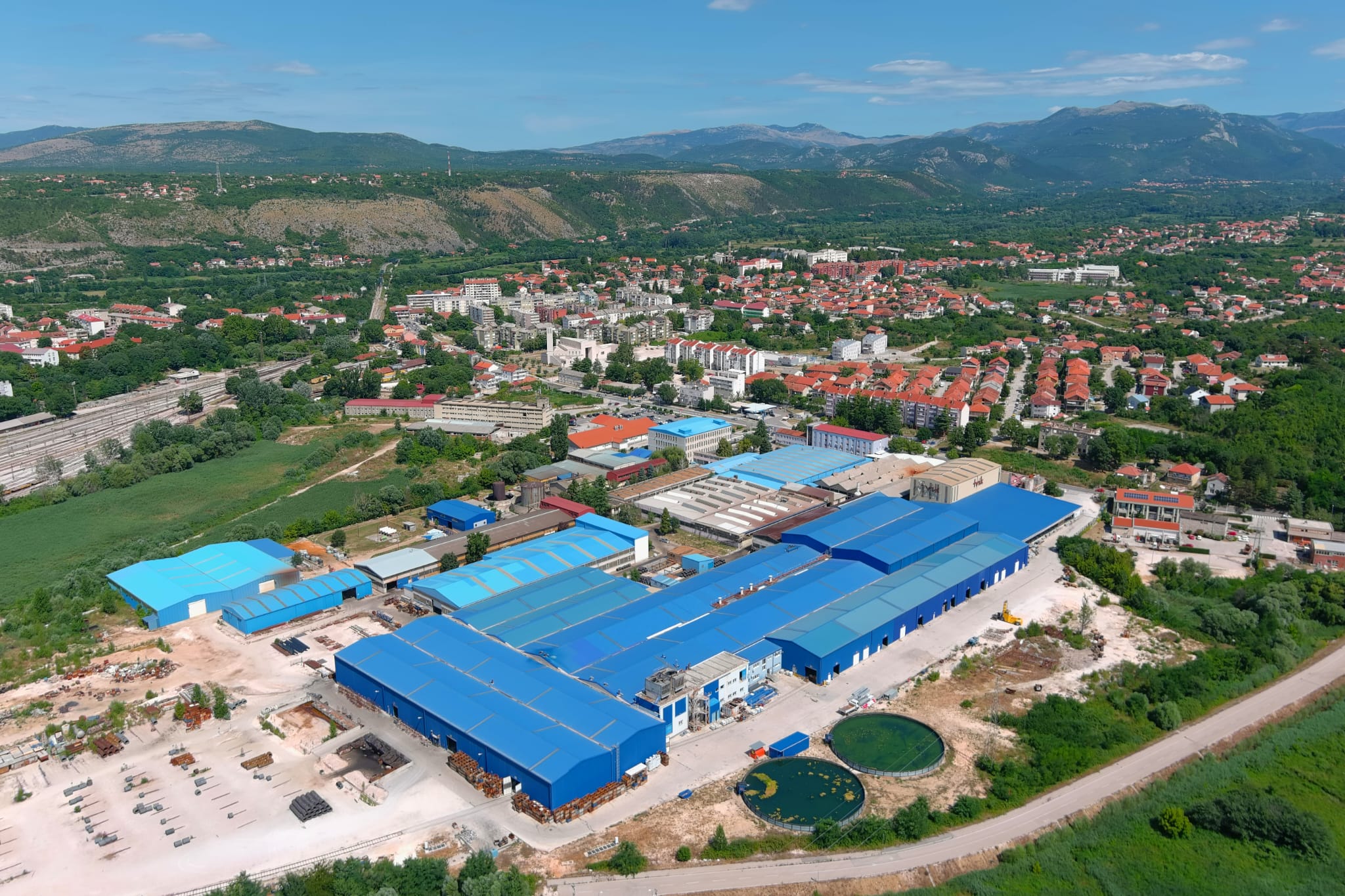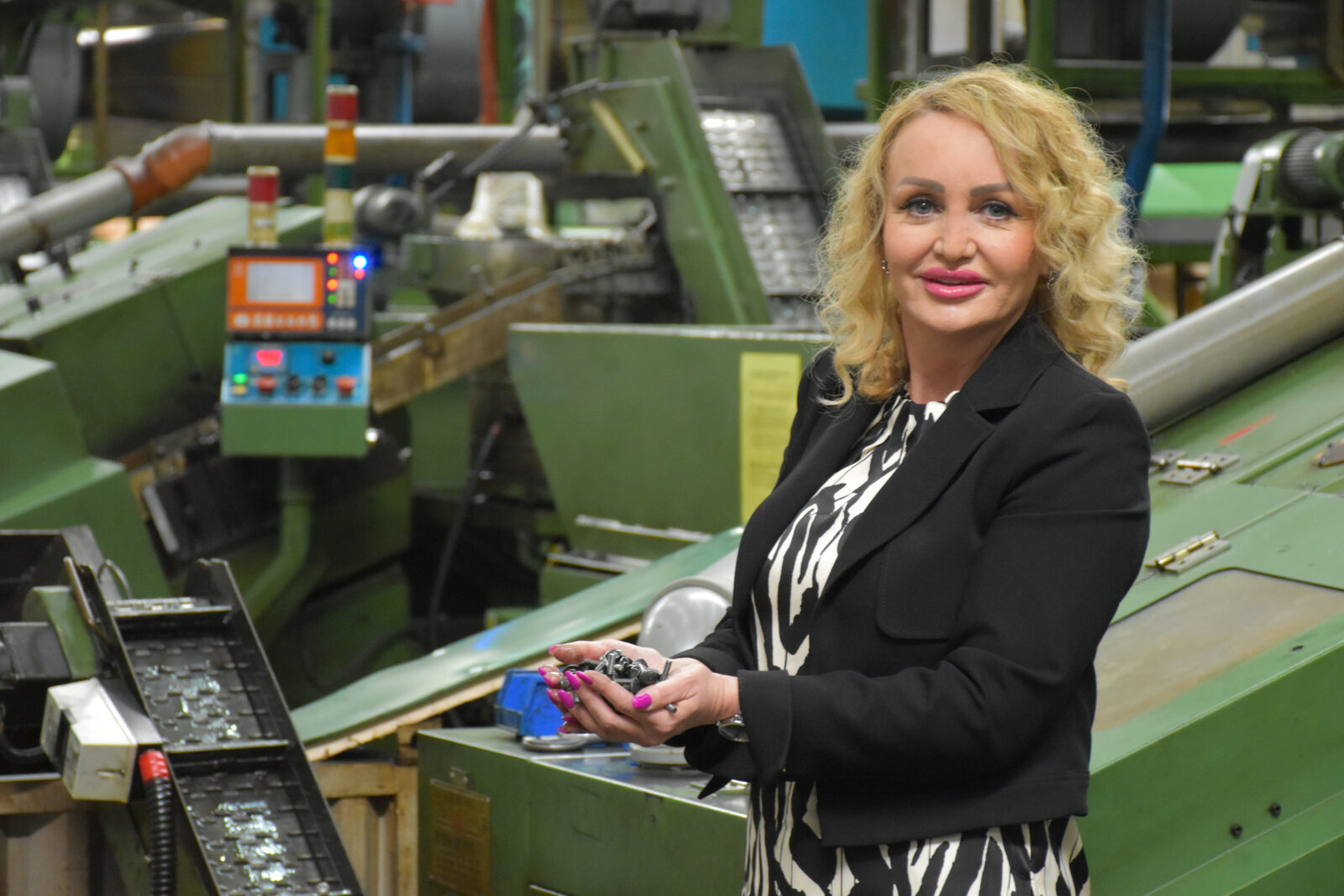(Taken from an article published in magazine Poslovni dnevnik. Author: Suzana Varošanec, May 11, 2023).
DIV company, owned by the Debeljak family under the leadership of entrepreneur Tomislav Debeljak, is increasing the utilization of its capacities in the bolt factory in Knin. In parallel with that, a process begins in which productivity and employment increase. Also, in the coming period, they plan to increase existing capacities with new investments, along with new employment.

The market is growing, they say in DIV, but they add that in the background of everything is their great success in which, together with European entrepreneurs in the industry, they took the lead in the fight against unfair competition. This is the result of 5 years of activity, so with the decision of the EC from last year, after a break of 5 years, they won the battle because the new anti-dumping measures of the European Union are in force, which introduced a protective duty on imported bolts from China. The effects of this are beneficial and are already reflected in the business of European manufacturers, as well as DIV.
"We put a lot of effort and energy into the return of the anti-dumping duty and did not lay off people, even though we did not reach full capacity in the years before that. Only now can we work normally, use our capacities and achieve maximum production, and even in the future period and exceed 66 thousand tons per year to meet the growing demand on the EU market," says DIV's export manager Julija Jukić, who has held this position for 10 years.

"They continue to export to the USA, which is their big market and remain present in the South African market, as well as in Tunisia and Morocco. However, the majority of production, around 80%, now goes from Knin to the European market, thus meeting the increased needs of DIV's customers from the EU. It is a story that goes beyond Croatia, so the event related to exports to third markets, which will be held at a high level in the Croatian Chamber of Economy (HGK), is also dealing with it. It is also an opportunity for companies to exchange experiences on various topics of access to third markets and the problems they face. Considering that DIV and this branch are currently the only successful case when it comes to trade protection mechanisms, they are also participating in the event, where DIV Group Management Board member Darko Pappo will discuss the importance of protective instruments for the industry of joined elements, iron and steel in Croatia and in bringing the importance of the EU to everyone and how the whole process went. Let us remind you that 2009 was particularly important for DIV when customs protection through tariff numbers for bolts was introduced. This is the origin of the idea of building a new factory in Knin - a large investment of 40 million euros, which employed the majority of the population of Knin, and even today the number of production workers is around 500. At that time, a customs duty of 78.1% was in force as an anti-dumping measure introduced for bolts from China. This was a turning point for the decision on a large investment, so in 2013, the factory started operating. At the beginning of 2017, large capacities were reached, but a cold shower followed: the anti-dumping regime was abolished without notice."
The company's goal was the serial production of standard bolts. By abolishing the high protective rate through anti-dumping, only the regular import duty of 3.7% remained, and the European market was flooded with Chinese products overnight. Neither DIV nor other European manufacturers could resist the competition from the import of cheap bolts from China, partly due to the low production costs and labor force with which manufacturers from China operate. However, there are also various tax reliefs as a form of support.
It is unfair competition, and we could not deal with it. In DIV, it was decided to maintain employment even though production was falling, as were the prices of bolts. The solution was to turn to other markets outside the EU, such as America and South Africa. By producing in smaller batches, we filled stocks and sold the goods in smaller batches to achieve a higher added value on the product. Of course, it was very important to fight and prove that the EC should protect the European manufacturer of bolts. Numerous data were collected, and DIV actively participated in this by connecting with other European manufacturers to prove the fact of unfair competition. Jukić adds the illogicality of the regular customs duty of 26% on the import of bolts from the EU to China.
Standard Bolts
In solving this problem, it is known that DIV cooperated with several institutions in Croatia, for example, with the Ministry of Foreign and European Affairs and HGK, and in the Union with EIFI (European Industrial Fasteners Institute), an association of bolt manufacturers. Those who also showed a lot of listening are their customers so information about prices in China came through that channel. At the beginning of 2021, when the EC learned to investigate what is happening in the market, through the supervision of the import of these goods from China, the situation began to change gradually. In fear of retroactive customs, buyers start turning to European producers, and since then the demand for European goods has been growing. Under these conditions, a new anti-dumping duty was introduced in February 2022, ranging from 21.1% to 86.5%, and DIV is starting to grow sales at market prices with increased demand.
The introduction of anti-dumping was also pushed by the problem that flared up in 2021 amid the coronavirus when goods were delivered from distant markets. It also culminated in the problem of container transport of goods from the Far East, reinforced by a high jump in transport costs. Due to the combination of bad trends in the market, it became clear that Europeans must have an alternative to the European market. Poland and Italy are the largest producers of bolts, but Croatia, or DIV, is at the top in terms of production volume. At the lowest levels during the liberal conditions for the import of goods from China, for example, they fell to only about 15 thousand tons. However, the capacity of the Knin factory is huge, and now the great potential is opening up to make maximum use of it. In addition, current efforts are directed towards the introduction of customs duties for the countries of the Middle East according to the same model, as well as for producers from certain markets that are sticking out again like in 2009, for example, Vietnam.
This is a new topic of conversation that is being opened in the EIFI to obtain the most accurate insight into market trends so that goods from China do not reach Europe through a possible detour. All in all, despite the decline in production, the clever policy of process management through the sale of smaller, but therefore more expensive series, the growth of the share of special parts in production with higher added value, and the aforementioned turn to third markets make up the formula for how the company bridged market barriers under the auspices of the liberalized regime. Last year, DIV achieved EUR 27 million in business revenue in the export of bolts, and the growth recorded on the European market is already at the level of around 50%, with a tendency to further increase.
The biggest burden of how to solve things was on the Croatian entrepreneur because he was the most affected. Others do not have mass production of standard bolts, but competition among European manufacturers is already growing. The conditions for this are encouraging, and the next period will show who will be the big players and how competitive advantage is achieved in a common market without barriers.
The expansion of the network of EU producers and the healthy market competition that everyone desires is expected because the demand for these products has been growing steadily since last year. European customers, distributors, and importers are increasingly turning to procurement from European manufacturers, and bolts are needed in all branches of industry - railways, construction, shipbuilding, wood and electrical industry, as well as the automotive industry, whose recovery is starting with these increased orders. If things are completely sorted out in a shorter period, already next year in DIV they expect steep growth, an increase in the number of partners and end customers, and with the mentioned investments, they claim to be one of the largest production companies in the metal industry are at the very top in the EU, especially in the area of bolts.









